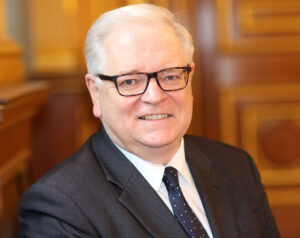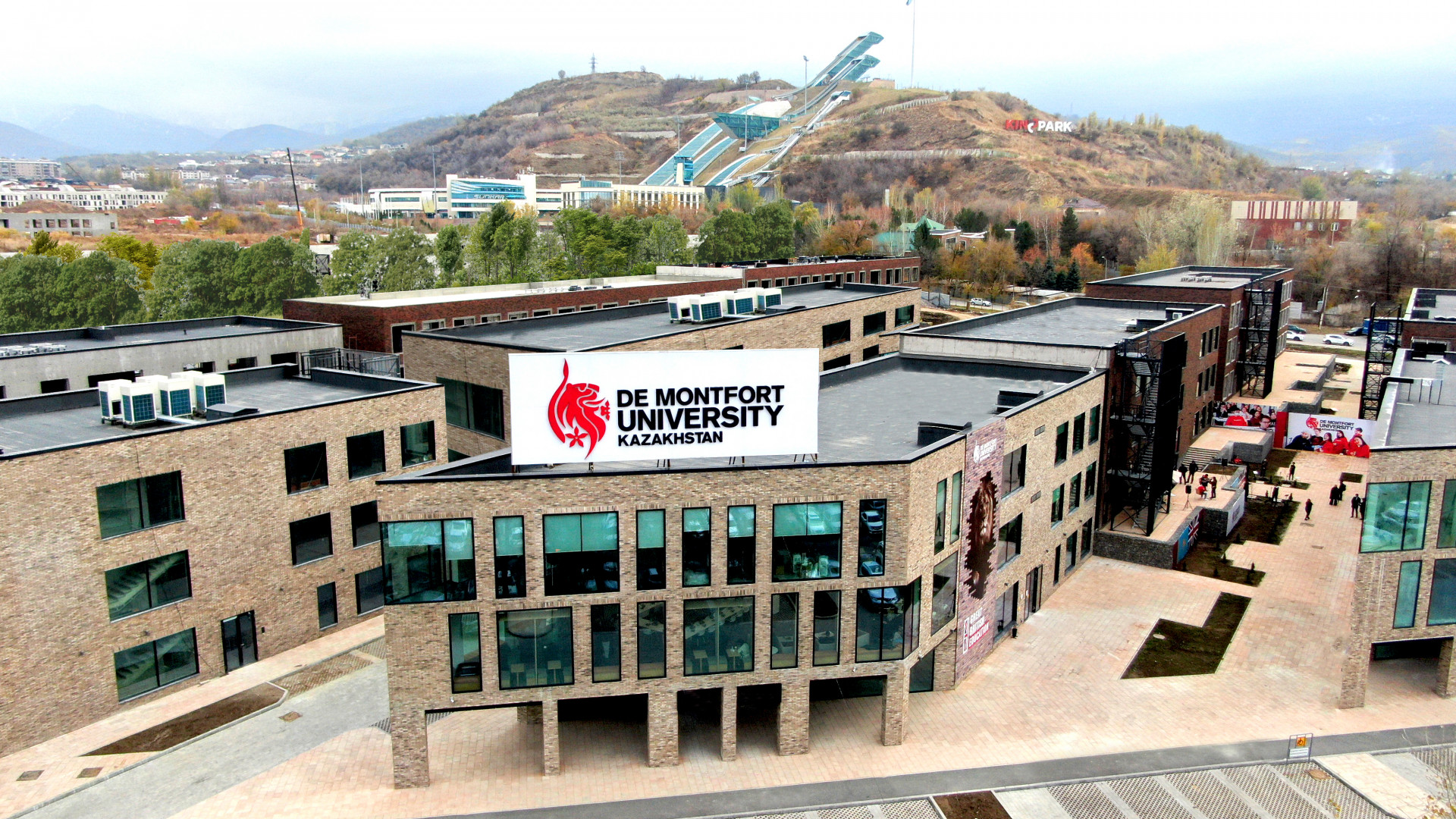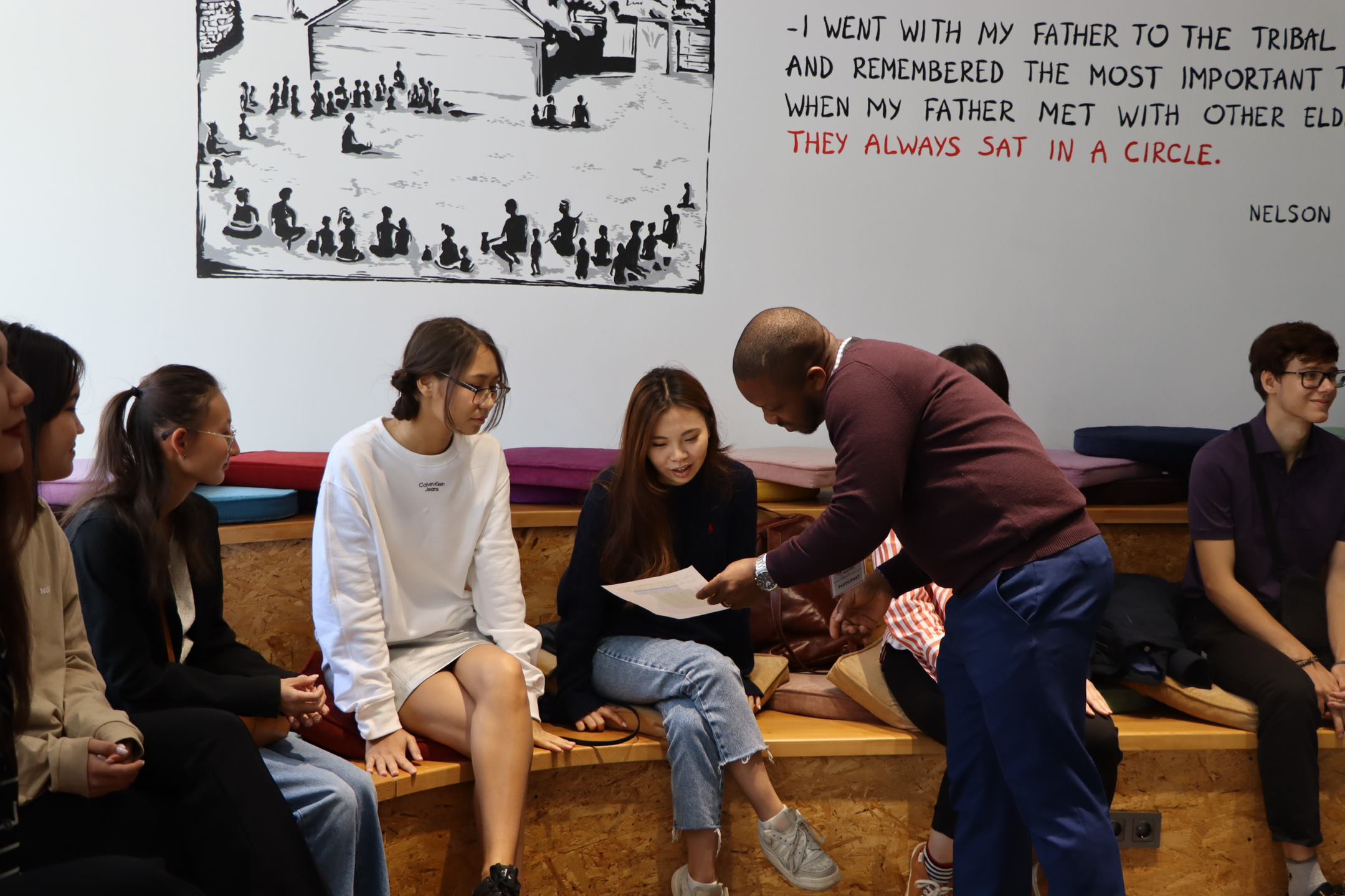ASTANA – De Montfort University Kazakhstan (DMUK) seeks to deliver quality British education in support of both countries’ knowledge and technology transfer goals and employment competitiveness targets, said Mike Gifford, the chairman of DMUK Board of Governors, in an exclusive interview for this story.

The chairman of DMUK Board of Governors Mike Gifford. Photo credit: Linkedin/Mike Gifford OBE.
Education has long been one of the key priorities in cooperation between the United Kingdom and Kazakhstan, said Gifford, who previously served as British Ambassador in Astana.
“The experience of Kazakhs living and studying in the UK is a cornerstone of the relationship between the two countries, promoting a deep understanding and appreciation of what each country has to offer, as well as strengthening personal, economic, and political ties,” he said.
With the UK attracting over half of all Bolashak (presidential scholarship program that sends bright talents to study abroad at the expense of state) scholars over the program’s three-decades-long lifetime, it became a key partner and a bridge-builder between the two nations, driving meaningful outcomes for Kazakhstan’s goals in adopting high-quality education standards.
“The global importance of what the British higher education system has to offer has been a constant theme for most of my diplomatic career, which took me to places as diverse as Egypt, Yemen, and North Korea, in the last two of which I served as Ambassador,” said Gifford.
“My time as British Ambassador to Kazakhstan, which came to an end in 2021, gave me perhaps the most striking example of how central the UK is to many young people’s educational journey,” he added.

DMUK opened the Almaty campus in September 2021. Photo credit: dmuk.edu.kz.
DMUK provides the “same standards of excellence” to study for a UK degree as a partner institution of De Montfort University Leicester (DMU) without the expense and challenge of living overseas for extended periods.
DMUK opened the Almaty campus in September 2021. The institution’s undergraduate program offers various degrees across fields such as business and law, information technology, and art and design.
“The newest faculty, art and design, offers a degree in graphic design and illustration, which has proved very popular,” said Gifford.
The British partner university for the Almaty project, De Montfort University Leicester, has been rated as a five-star ‘excellent’ institution by Quacquarelli Symonds (QS) World University Rankings, a world leader in evaluating higher education performance.
“DMU joins 15 other universities in the UK and just over 100 universities worldwide in being granted the five-star accolade,” said Gifford.

DMUK offers degrees in business and law, information technology, and art and design. Photo credit: DMUK press service.
One of the key objectives DMUK aims to deliver, according to Gifford, is employability – “to create students and young professionals with the right skills for the world of work today, who can go immediately into employment in the sector of their choice.”
The university places great emphasis on creating close links with industry and commerce. Graduates will be equipped with enduring, future-proof skills regardless of their career paths in Kazakhstan and abroad.
“All students are placed in internships with Kazakh and other businesses, and we have increasingly deep connections with the business community in Kazakhstan to identify and match companies’ interests and needs with the university’s expertise, academic programs, initiatives, and talent,” said Gifford.
To this end, the university has also established a Business Advisory Board, whose members come from different business backgrounds, from entrepreneurs to corporate leaders, who contribute to developing relations between the university and the world of business. University staff and students regularly hold joint events with the participation of local businesses.
The strategy is paying dividends. More than 60 companies have signed partnership agreements with the university.

The art and design faculty has proven to be very popular, according to Gifford. Photo credit: DMUK press service.
Then there is the university’s role in developing the country’s education sector and contributing to Kazakhstan’s local community.
“We are a Kazakh university as well as an international one, and through a systematic program of outreach to schools, parents as well as businesses, we are learning more and more about the country’s needs as it modernizes its workforce and continues to develop economically and politically,” said Gifford.
“The university enjoys a close relationship with the Kazakh government, which has been very supportive indeed from the outset. There have been regular discussions of how best to serve the higher educational needs of Kazakhstan, for example, in curriculum development and cooperation on regulatory issues,” he added.
Another social benefit can be seen in the university’s commitment to breaking down barriers to entry caused by social factors. DMUK seeks to expand access to education to more people from diverse and less advantaged backgrounds.
“I am particularly proud of the fact that the university offers a high number of scholarships, both for students who are academically outstanding and also for those whose personal circumstances may mean they need help with tuition fees,” said Gifford.
The university arranges a scholarship competition called DMUK Talent, in which the applicants compete to present their solutions to current social issues or innovative and entrepreneurial ideas. Seventeen students in 2021 and 18 students in 2022 received tuition fee discounts of 33, 50, and 100 percent after passing all four levels of the competition.
Gifford gave some earlier indication of the university’s ambitious expansion plans when he said it has recently acquired a new building next door to the current campus to accommodate rising student numbers.
“As a young institution, research and development will take time to come about. But our parent university in the UK has a strong track record in research, and we will look to develop this area of work in the future. As a business-oriented higher education establishment, my hope, too, is that we will see start-up companies develop naturally from campus activity, with the backing of the skills and expertise we can already draw on,” he said.
Gifford’s remarks on the relationship between the UK and Kazakhstan evolving in the future addressed Kazakhstan’s strategic location and pointed to the fact that education is only one strand among many other areas for cooperation.
“Kazakhstan’s strategic location at the heart of Eurasia, with Russia and China as its neighbors, means that it has a unique insight into regional affairs. At a time of uncertainty and challenge in global affairs, the UK needs to continue its dialogue with Kazakhstan and tap into its experience and knowledge,” said Gifford.
